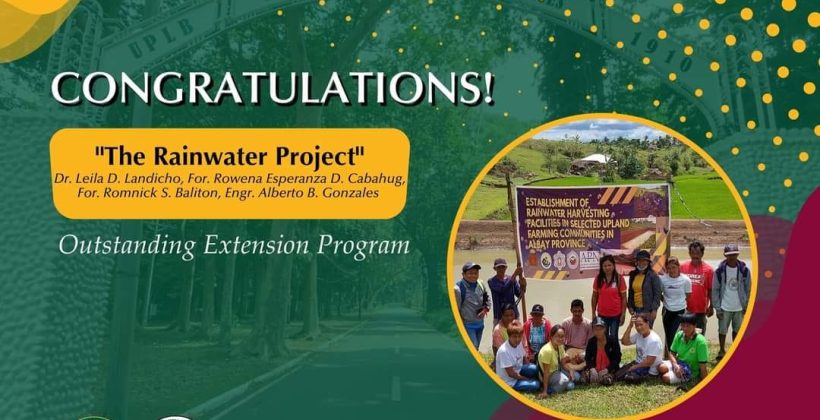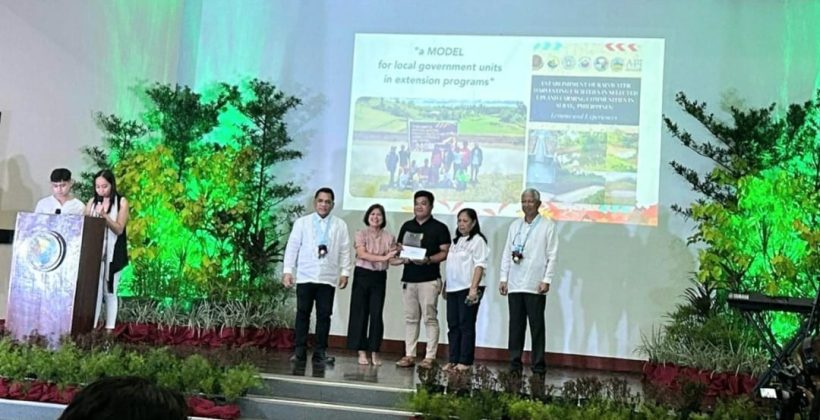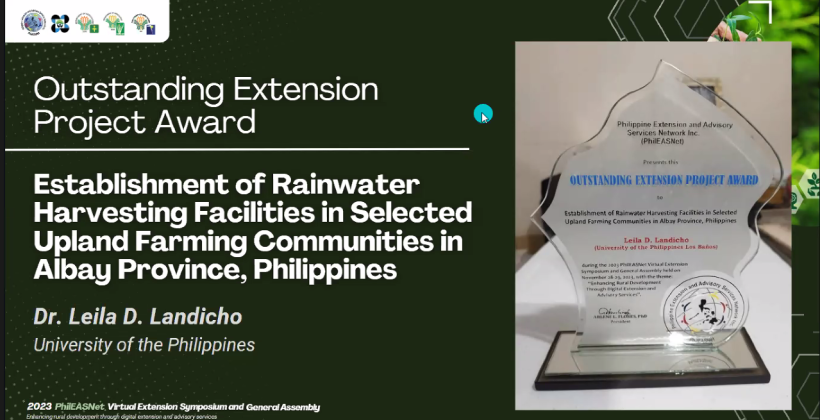The APN capacity development project titled “Establishment of Rainwater Harvesting Facilities in Selected Upland Farming Communities in Albay Province, Philippines (CBA2019-01SY-Landicho)” otherwise known as the RAINWATER Project was launched to help enhance climate change adaptation of upland farmers in selected communities in Albay Province, Philippines.
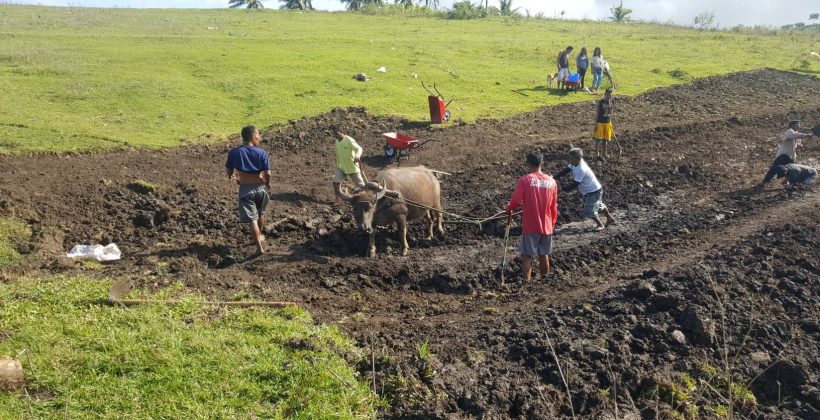
The RAINWATER Project is a collaborative undertaking among the researchers and faculty members of the University of the Philippines Los Banos (UPLB) Institute of Agroforestry and the Institute of Renewable Natural Resources and the Bicol University College of Agriculture and Forestry (BUCAF). The project collaborators represent different expertise such as forestry, watershed management, community development, agroforestry and agriculture. This project provided an opportunity to promote multidisciplinary and interdisciplinary project development and the sharing of technical expertise in project implementation. The project has further harnessed the technical expertise of the project collaborators in the establishment of rainwater harvesting facilities, integration of agroforestry technologies, and building the social infrastructure of the local communities using participatory approaches. As such, the RAINWATER Project was identified as one of the notable extension programs of UPLB College of Forestry and Natural Resources in 2021.
The RAINWATER Project places multisectoral collaboration at the core of the project implementation. Thus, it has initiated the partnership among the local government units through the Office of the Municipal Agriculturist, the local state college, and the farming communities, by forming the local multisectoral team. These teams served as the core group in the project implementation and have remained the same until now. The model used by the RAINWATER Project was likewise adopted by BUCAF in the implementation of its “S&T-Based Rehabilitation of Typhoon Damages Caused by Super Typhoon Rolly in Albay” project covering six cities and municipalities and nine upland farming communities in selected communities in Albay Province in 2022. The Office of the Municipal Agriculturist of the three local government units have likewise recognised the value of establishing rainwater harvesting facilities’ and their impacts in promoting sustainable upland development.
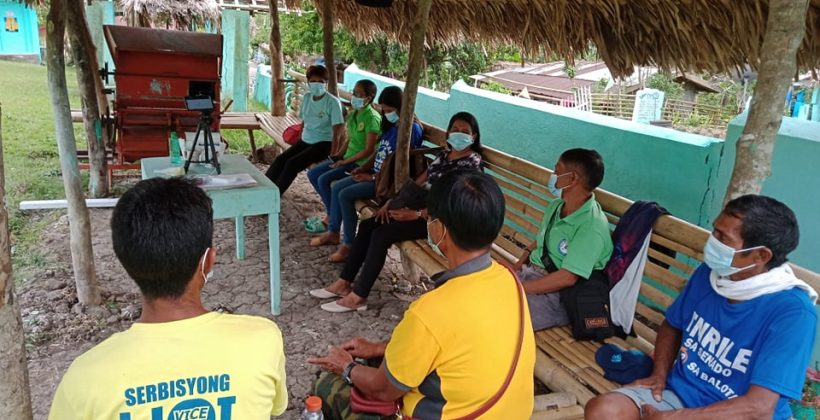
The smallholder farmers in the three upland farming communities, namely: Barangay Palanas, Guinobatan; Barangay Malama, Ligao City; and Barangay Balinad, Polangui, have been confronted with the problem on the lack of water to irrigate their crops particularly during the dry season. As such, they leave their farms idle during this period. However, these upland farming communities, located in typhoon-belt areas, experience heavy downpours during the rainy season. The RAINWATER Project provided an opportunity to collect rainwater during the rainy season to ensure continuous water availability throughout the cropping season.
While establishing rainwater harvesting ponds is a tedious process, the farmers’ perseverance to complete the projects paid off. From their personal accounts and observations, the farmers were able to experience the many contributions of rainwater harvesting ponds. Eleven functional rainwater harvesting ponds were completed in the three upland farming communities. These ponds have become their main source of irrigation for their crop production, especially during the dry season. The presence of these rainwater harvesting facilities enabled the rice farmers in Barangay Palanas, Guinobatan, to cultivate rice in two cropping seasons, as compared to just one cropping season in the past. The farmers were also able to establish an agroforestry farm that showcases the integration of mulberry and dragon fruit, both high-value crops that could be their source of income. In Barangay Malama, the farmer-cooperators and adjoining farms have expanded their rice production areas, and begun cultivating other vegetable crops. The farmers in Barangay Balinad, Polangui were able to plant corn on the farms that used to be idle because of the lack of irrigation. This project pave the way for the partnership among the local government units, state college, and the upland farming communities.
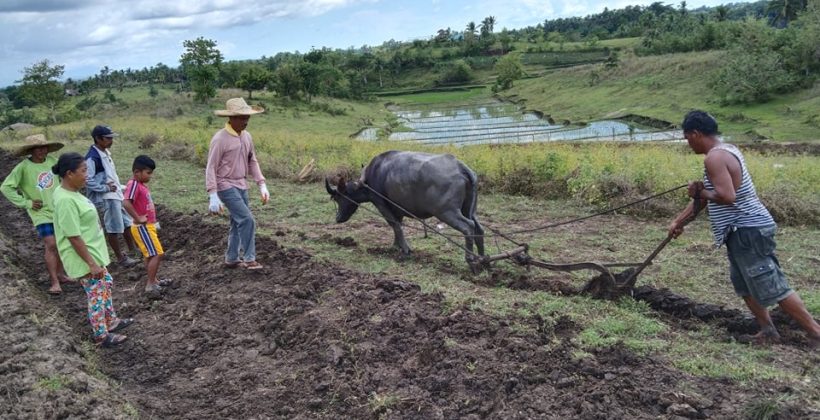
Besides the physical facilities, the three upland farming communities have also acquired the knowledge, skills and attitude in needs-based participatory project planning and development. Through the RAINWATER Project, the spirit of collective action or “bayanihan system” was harnessed, and served as an important factor towards the completion of the rainwater harvesting facilities. This project has also promoted resource sharing among the local stakeholders. The local government units provided the planting materials, provided technical support services without additional compensation, while the state college provided technical expertise in agroforestry development and science-based approaches to rainwater harvesting. The farming communities shared their physical labor as their counterpart. Indeed, the RAINWATER Project enabled the local stakeholders to value the project and develop a sense of project ownership, which paved the way for the sustainability of the project initiatives.
RAINWATER Project has established 11 rainwater harvesting ponds: Two in Barangay Palanas, four in Barangay Malama, and five in Barangay Balinad. Agroforestry demonstration farms were also established. These include an agroforestry system integrating Mulberry (Moros nigra) as hedgerow species and dragon fruit (Hylocereus undatus) as the alley crop. Mulberry wine is being produced in the Bicol Region, and thus, Barangay Palanas could be a potential supplier of raw materials. In Barangay Malama, the sloping farms around the ponds were developed into contour farms where kakawate (Gliricidia sepium) serves as hedgerows, and lemon (Citrus limon), cacao (Theobroma cacao), turmeric (Curcuma longa) and vegetable crops serve as the alley crops. In Barangay Balinad, steep areas around the ponds were developed into contour farms with kakawate as the contour hedgerows. Besides these physical developments, RAINWATER Project has also generated several knowledge products that aim to disseminate the lessons and experiences of the project for possible replication. These products include the Guidebook, which discusses the step-by-step procedure in the project implementation, as well as the lessons distilled from the project experiences; video production about the RAINWATER Project, which highlights the experiences, accomplishments and lessons of the project for broader audience; and a journal article titled “Rainwater harvesting for enhancing upland agriculture: Lessons and experiences in selected upland farming communities in Albay Province, Philippines,” an article published in the APN Science Bulletin.
Recognising its contributions and impacts to the local partners and smallholder farmers, the RAINWATER Project received the 2023 Outstanding Extension Project award from the UPLB CFNR during its Foundation Day celebration in April 2023 and the Philippine Extension and Advisory Services Network during its Symposium in November 2023. The RAINWATER Project is also among the entries to UPLB AGORA’s call for the Outstanding Extension Project for 2024.
